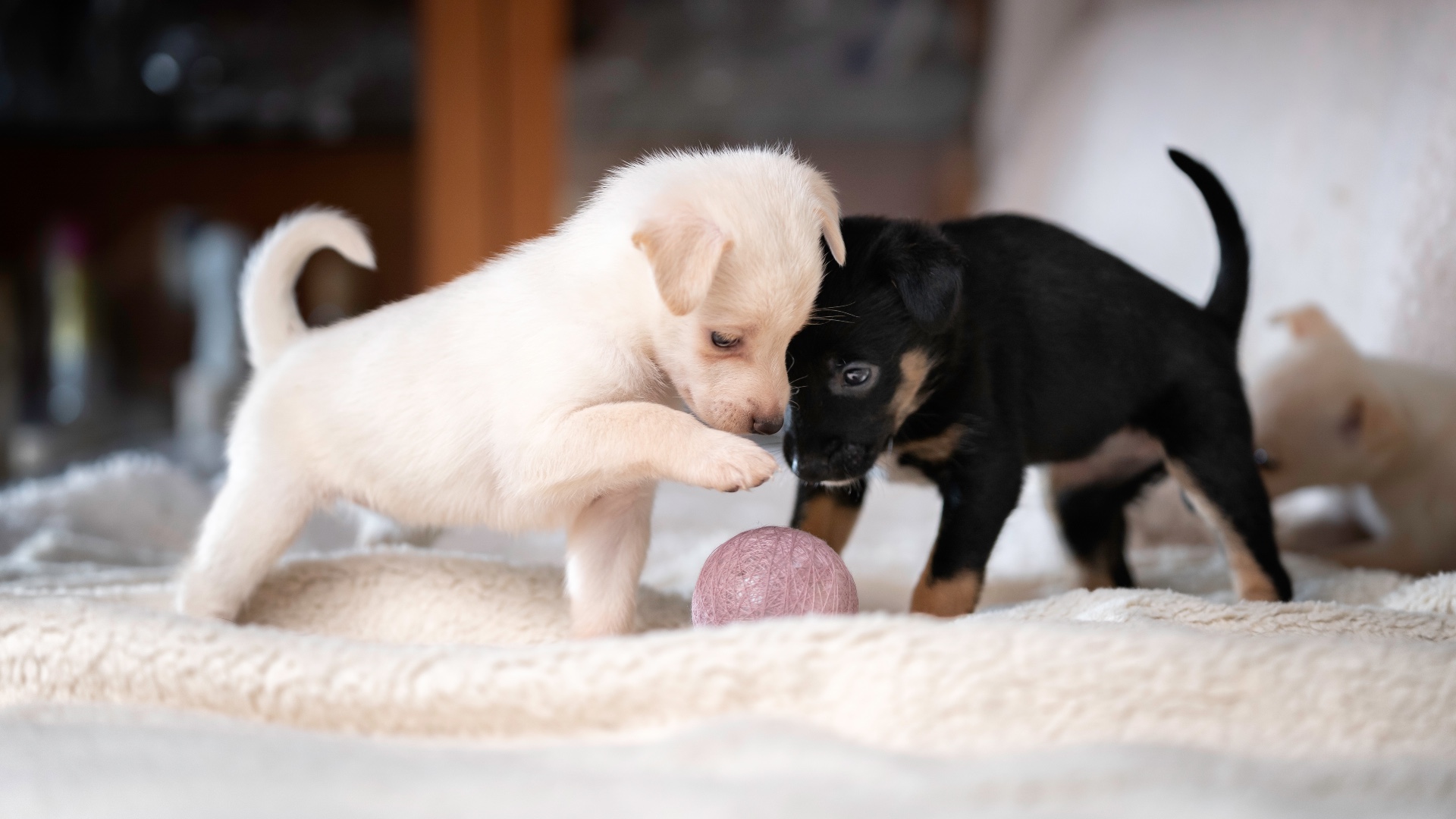Five things you should do with a new puppy, according to an expert trainer
Do these five things with your puppy and you'll have an obedient and well-behaved dog

Get the best advice, tips and top tech for your beloved Pets
You are now subscribed
Your newsletter sign-up was successful
Disclaimer: Unless specifically stated, any expert comments quoted in this news piece have been taken directly from the Instagram post shared below.
When bringing home a puppy for the first time, it's easy to want to spend all your time cuddling and playing with them. After all, there's plenty of time to focus on training later, right?
Wrong!
According to Carolyn, an expert trainer and founder of Good Dogs Training, it feels like you have all the time in the world when you bring home a new puppy.
But very quickly you've got an adolescent dog on your hands, and if you've not put in the hard work early on, you could find yourself in a whole heap of trouble.
In order to help you and your fur friend get off to a flying start, Carolyn has shared a post to Instagram in which she reveals five things you should do with your new puppy to prevent problems down the road.
Read on to find out what they are...
Get the best advice, tips and top tech for your beloved Pets
A post shared by Good Dog Training (@gooddog.training)
A photo posted by on
1. Socialize: "Before 12 weeks, give your puppy great new experiences with new people, other animals, smells, sounds, objects, etc," Carolyn advises. "The socialization period is short, so don't miss out. Take full advantage of your puppy's developing brain to help them form new positive connections."
2. Reward attention: Carolyn says it's important to reward your pup's attention and to do so often. "An attentive puppy is much easier to train, and this is a skill that will be useful for your dog's entire life."
3. Go to puppy classes: "A good puppy class is so helpful in successfully training and raising a puppy. Get started early on with age-appropriate training, socialization and learning about body language and appropriate play."
4. Prevent bad experiences: "Not only do we want to provide our puppy with good experiences, we also want to prevent bad ones," Carolyn explains. "Don't put your puppy into situations they're not comfortable in, as this can have a lasting impact."
5. Start training early: Carolyn says it's important not to wait until you have a behavior problem on your hands to start training. "Training can help prevent common problems, like pulling on a leash or jumping on people. The sooner you start training, the easier it is."
According to Carolyn, puppy brains are like sponges that quickly soak up new information, so by training and socializing early, you take full advantage of this.
If you'd like some extra support when it comes to helping your new fur friend learn the ropes of what's expected of them, we recommend reaching out to a professional trainer.

Kathryn is a freelance writer who has been a member of the PetsRadar family since it launched in 2020. Highly experienced in her field, she's driven by a desire to provide pet parents with accurate, timely, and informative content that enables them to provide their fur friends with everything they need to thrive.
Kathryn works closely with vets and trainers to ensure all articles offer the most up-to-date information across a range of pet-related fields, from insights into health and behavior issues to tips on products and training.
When she’s not busy crafting the perfect sentence for her features, buying guides and news pieces, she can be found hanging out with her family (which includes one super sassy cat and a kitten), drinking copious amounts of Jasmine tea and reading all the books.
She has written for a range of publications, including Fit&Well, Top Ten Reviews, LiveScience, Goodto, and Product Hunt.
